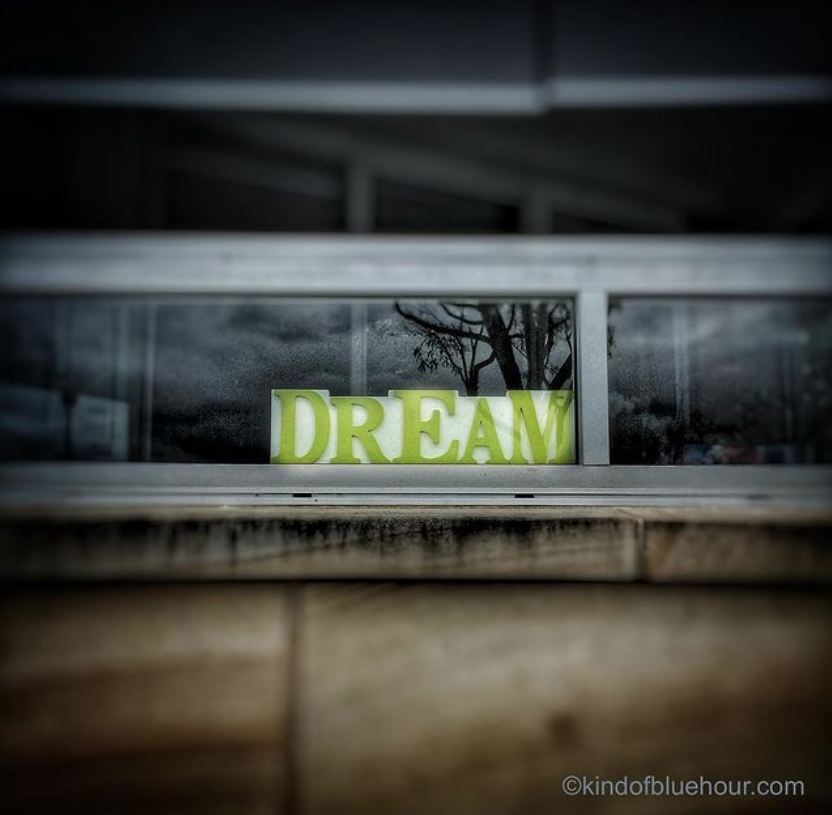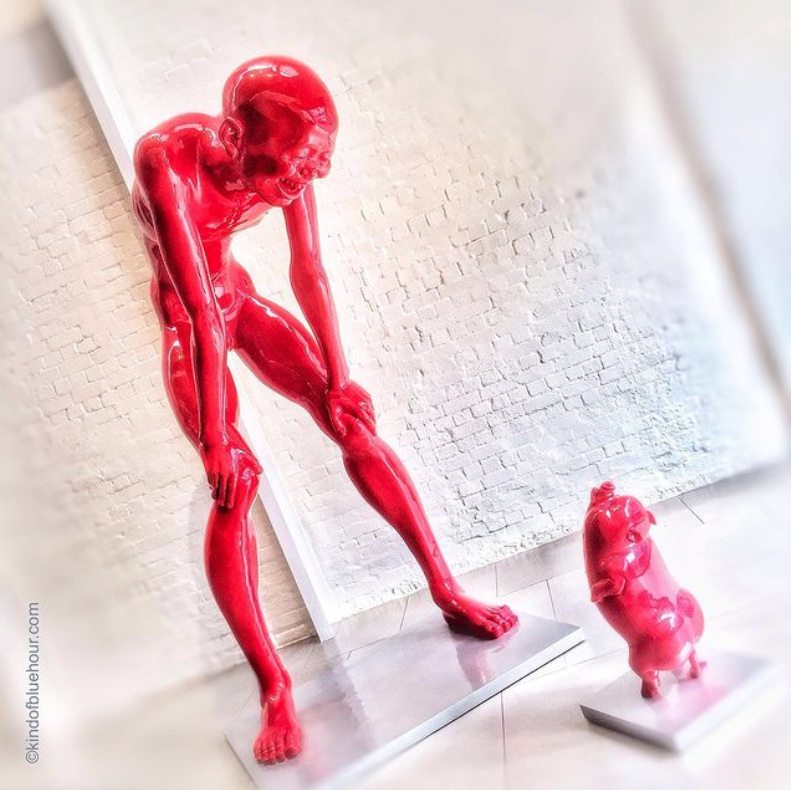My hearing loss has had a profound effect on my life. The vast majority rarely encounter people under the age of sixty who have this disability. Those who live with it face a daily struggle. Others do not notice the struggle. They might see a slightly vague person who they have to repeat things to:
“Perhaps he’s not very bright”, she might think.
“Maybe his English is not very good. He is brown after all,” he might suppose.
Living with hearing loss presents immense challenges, challenges requiring courage and self-forgiveness. Thick skin is needed and an outlook that does not overly attach value to the possible assumptions of others.
It is likely my hearing loss originated with the mumps, which I contracted between the age of seven to nine. When I was ten my parents received a school report:
“Daniel daydreams in class. He’s always looking out the window. He’s a dreamer.” I paraphrase my year five report from foggy memory. My mum also noticed I had the TV very loud and sat very close to it. So the kid was dispatched for a hearing test. Since then I have always had a pair of hearing aids close at hand.

For many years audiologists offered no explanation for my impairment. Some doctors speculated I’d had it since birth. One went so far as to propose that I just had wax in my ears and that a good clean would solve everything. This merely serves to underline that some people can’t say “I don’t know.”
I did some research, knowing I’d had a couple of serious illnesses as a child. I was in hospital as a baby for pneumonia. But hearing loss is not a known side-effect of pneumonia.
I had the mumps when I was about eight. The MMR (measles, mumps, rubella) vaccine now protects the majority of the population in developed nations from this highly contagious virus. Mumps causes a swelling of the parotid glands behind the ears – the largest of the salivary glands. Permanent hearing loss is a side-effect in 5 out of 10,000 cases. Full vaccination is 88% effective.
I am almost certain mumps is how I lost my hearing. I remember being able to whisper among my playmates as a child and watch the TV at low volume. I also cannot conceive how I could have acquired language skills with a hearing loss of this severity. Unless I was a genius.
I started wearing hearing aids at high school. They were a target of curiosity as well as ridicule. People in class would start calling my name with a very quiet voice, slowly raising it until they found the threshold at which I could hear. I agree this is mildly amusing. I used to smile and laugh along with them.
As I approach my mid-forties I realise I will, in a decade or so, be reaching the age where having a hearing loss is more, shall we say: mainstream!

Hearing assessments have put my loss at ~25% in each ear. In certain social situations I can function.
It’s often about positioning. If I’m close enough to the speaker, or in the middle of a social group (ie centre of table), what I miss out on I can fill in by context or lip reading. My lip reading skills are fairly basic. But if I concentrate they are probably serviceable depending on the situation and providing I can hear at least a little.
When most people speak they don’t speak any louder than they need to. There is an implied acceptable level of volume and any level above this is considered forceful or exuberant. So there are some people who I cannot converse with without a degree of awkwardness because they are too softly spoken…for me.
Aids help in certain environments where background noise is minimal. These environments are usually not cafes, pubs or parties.
That’s right. Parties and pubs do not make things easier, even though everyone must speak above the background noise. In these environments, voices blend in a cacophonous symphony with no harmonic development or distinguishable parts. Rather, I am faced with a wall of sound. Hearing aids merely escalate this cacophony to the roar of continuously crashing waves; but without the playful foam, the smiling sun and the soft sand.
The only time I hear conversations at something approaching “man on the street” level is when I watch TV with headphones. I’ve missed the dialogue of entire movies because I didn’t bring my hearing aids to the cinema. I didn’t understand the ending to The Sixth Sense due to the deficiency in one of my five basic senses.
“Would you like another drink?” “What?”
I’ve been unable to enjoy many a drink at a friend’s when it was decided the social activity would be sitting on the couch commenting on anything, including what was on TV, which obviously I also couldn’t hear. (These days subtitles solve this, at least the TV part.)
One of the worst experiences I’ve had was forgetting to bring my aids to a campfire party.
I’ve always been a bit scatter-brained, especially when I was younger. Many classes, lectures and tutorials were exercises in collecting fragments of sentences. In larger classes, sometimes even hearing aids couldn’t bring my ability up to functional comprehension. If the batteries ran out and I didn’t have replacements at hand, it was time to quit the lecture and go to Manning Bar.
In the second year of my Arts degree at Sydney University, a history professor agreed to tape his lectures for me. So I escaped to ancient Rome and Renaissance Florence in the audio labs in some dungeon beneath the Brennan McCallum Building.
University worked out well for me in the end: I graduated with first class honours in English, substituting my unproductive class time with critical reading and deep analysis: this is something I still do today and wish others did more of. But after university, attention is shifted to office politics, the business of raising a family and paying off the loan for the 4WD, and generally trying to keep up with what is cool.
The term ‘intellectual’ is applied by the mainstream to people who should be smiled upon but pitied for thinking too much. If more people thought critically, then more people would see through a media and political class that is doing little to thin the fog that is afflicting our choking planet. Now is not the time for inaction. But instead we have a political class all too willing to stoke fires of grievance and self-entitlement.
Such are the thoughts of the Man with a Hearing Loss, who wrapped in his cloak of silence, contends with the swirling eddies of an inner dialogue. Self-consciousness and isolation has forced on me a greater attachment to the inner world.
A semiotics of hearing loss
Picture this. Everyone bursts out laughing. I sit there in silence with half a smile, pretending to understand the shared moment of mirth. Sometimes I will get the joke all the way up to the punchline, which is, of course, muttered.
Or the other extreme: I hear a word or two and jubilation swells inside me: I heard a word! I know something of what they’re talking about!
In one-to-one conversations I often need jokes repeated. Jokes are never funny the second time around. If I have to ask for a third repetition and still don’t understand, then I will just fake laughter. Laughter is almost impossible to fake. So the end result: an awkward moment and a lost opportunity for some light-hearted bonding.
People try to console me by saying I have missed a lot of idle chat. What they fail to realise is that deeper human bonds are formed during small talk.
Small talk functions as a cover for subtler emotional exchanges. Tone of voice, body language, grunts, groans and sighs are all emotional gestures, along with speech. Different combinations of gestures make up the entirety of an interaction, and many of the audible ones are not so loud. With small talk, it is often not what was said, but how it was said. But understanding the deeper ‘how’ requires at least first understanding the superficial ‘what’.
Social interactions, especially the more light-hearted ones where we talk about the weather, role play, engage in minor gossip or comment on the current environment, are crucial steps in the formation of friendships and relationships. I have never been able to master communication on this level simply because my disability does not allow it. Only in very quiet environments with hearing aid assistance can I participate in Small Talk.
But this type of talk does not always occur in peaceful environments! Quite the contrary. The throwaway lines of small talk are often tension releases for icebreaker situations and flirting. They are spontaneous exchanges at a lower volume, often in the form of ‘asides’, and are vital for building rapport, finding commonality in humour and establishing intimacy. Not having access to this level of communication has understandably caused me a great deal of AMO (actual missing out).
My disability has led to many confidence-shattering experiences. You may have heard of an entirely modern phenomenon related to AMO, called FOMO, or fear of missing out. I have missed out on a lot. I’ve missed the punchline to so many jokes that it would be great if this sentence had a punchline.
Other people with hearing loss will understand what I’ve been saying here. Those of you who know someone with a hearing disability hopefully now have greater insight into their life experience. My goal has been to articulate the challenges I face and the sense of exclusion. Later I will look at solutions and strategies for living with this disability.
For now I’ll finish with an anecdote from my first day at high school:
Registrar: “What is your name.”
Me: “Daniel Wild.”
Registrar: “Where do you live?”
Me: “Daniel Wild”
Registrar: [giggles]
Me: [looks crestfallen]

Thanks Dan, really insighrful. I appreciate you sharing your story.
Thanks Alicia. I am likewise always touched by your tales of experiences with Kura.